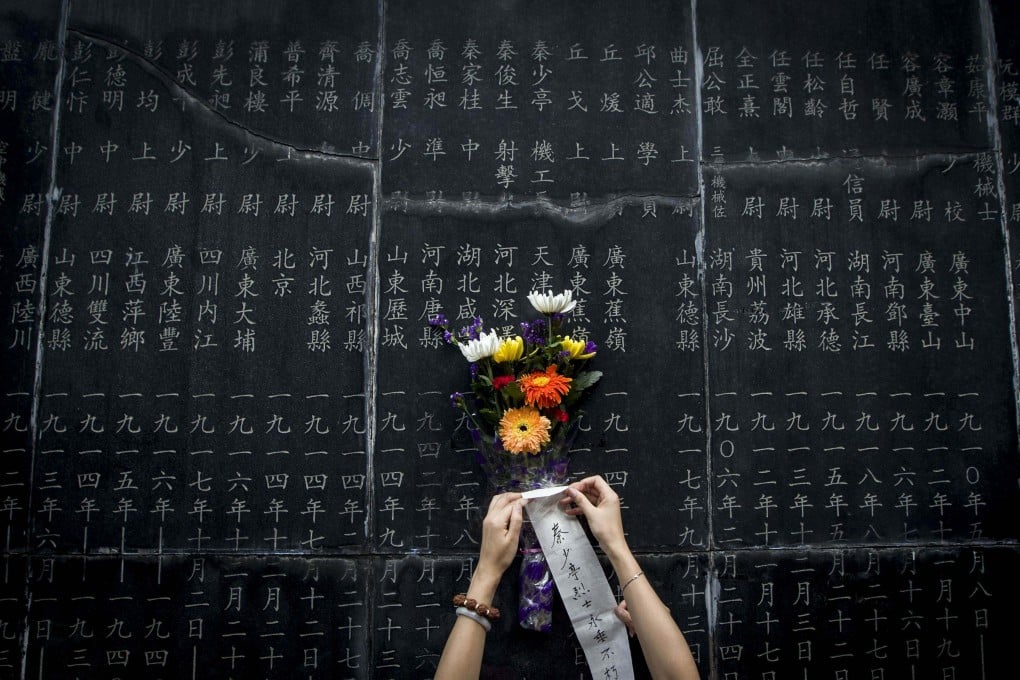LATEST INSIGHTS
Your Present Location: LATEST INSIGHTSWhy some Chinese academics say it's time to rethink WWII history – starting with 1939
Source: South China Morning Post Published: 2025-05-09

By Laura Zhou
Chinese academics are calling for the “Western-centric” version of World War II to be rewritten by pushing back the start date nearly a decade and placing Chinese forces firmly on the front line against fascism.
Chinese academics are calling for the “Western-centric” version of World War II to be rewritten by pushing back the start date nearly a decade and placing Chinese forces firmly on the front line against fascism.
Instead of Germany’s 1939 invasion of Poland marking the beginning of the global conflict, some academics at a second world war history seminar in Beijing on Tuesday said it should be Japan’s 1931 invasion of Manchuria, which escalated into a full-scale war in China in 1937.
“This historical perspective that marks 1939 as World War II’s starting point … diminishes and undermines China’s role in the war,” said Wang Wen, executive dean of the Chongyang Institute for Financial Studies at Renmin University.
This year is the 80th anniversary of the end of the second world war and countries around the globe are marking it with their own commemorations.
In Moscow this week, Chinese President Xi Jinping will attend a Victory Day parade in Red Square, marking the surrender of Nazi Germany to the Soviet Union in 1945.
The attendance reflects not only Beijing’s present-day support for Russia but also a desire to stake a bigger claim on ending the conflict.
Ahead of his trip to Moscow on Wednesday, Xi called for joint efforts with Russia to “stick to the correct historic perspective of World War II”.
“Any attempt to distort the truth of the history of the second world war, deny its victorious outcomes, or smear the historic contributions of China and the Soviet Union is doomed to fail,” Xi wrote in state-run Russian newspaper Rossiyskaya Gazeta.
Wang, from Renmin University, said that in today’s stories about the war, the United States and Britain were portrayed as “primary leaders” in securing victory, and China, a member of the Allies battling Japan, had been “often forgotten”.
“Many Hollywood movies focus on the D-Day landings, portraying American and British heroism. Yet in reality, the Soviet Union suffered the heaviest casualties, along with China, each enduring tens of millions of casualties,” he said.
“The true pivotal forces of the war cannot ignore the contributions of the Soviet Union and China.
“China wasn’t just a World War II victim – it was a pivotal force in defeating fascism during the war.”
During the war, the Soviet Union lost 27 million lives, while over 35 million people perished in China, according to Chinese official figures.
Speaking at the same event, Han Lu, a researcher with China Institute of International Studies, said the Asian theatre should never be left behind in wartime history.
“The Chinese theatre was not only the main battlefield in Asia but also one of the principal fronts in the global anti-fascist war, but due to the Cold War, China’s crucial role and contributions in World War II have been largely overlooked by the West,” Han said.
“The West is looking to counter China and Russia, including using second world war history as a political tool. That’s why China and Russia should bolster strategic collaboration in the regard to safeguard the existing international order.
“Let’s be blunt: China’s current international standing, including its permanent seat on the UN Security Council, was not granted as a favour by others. This position was earned through tremendous sacrifice and unwavering struggle.”
The post-war international order – forged by the Allied powers 80 years ago – is facing unprecedented challenges, from a growing divide between industrialised nations and the Global South, and the rise of non-Western powers like China and Russia.
Under US President Donald Trump’s “America first” policy, the US is turning away from the post-war international order it helped to build while China is deepening its political and economic ties with Russia to counter what they see as a Western campaign to hem them both in.
So much so that during a visit to Japan in March, US Defence Secretary Pete Hegseth hailed the “shared warrior ethos” between the US and Japan, calling the former foe an “indispensable partner” in deterring China.
Hegseth had just attended a joint memorial service in Iwo Jima, the scene of a battle near the end of the war that claimed the lives of 6,800 US Marines and some 18,500 Japanese.
“The US is looking to reshape the global architecture to its liking because the West believes the ‘rules-based international order’ now has shown signs of unravelling,” Han said.
But on Tuesday, Chinese experts said that maintaining the existing global order, including institutions like the World Trade Organisation, United Nations and the monetary system established at Bretton Woods in December 1945 that fixed currencies to the US dollar, was still in the best interests of most countries.
“From this point of view, there’s no doubt that World War II is still significant today,” said Xu Haiyun, a historian with Peking University.
Key Words: WangWen, China, WWII, Japan, History























































































 京公网安备 11010802037854号
京公网安备 11010802037854号





